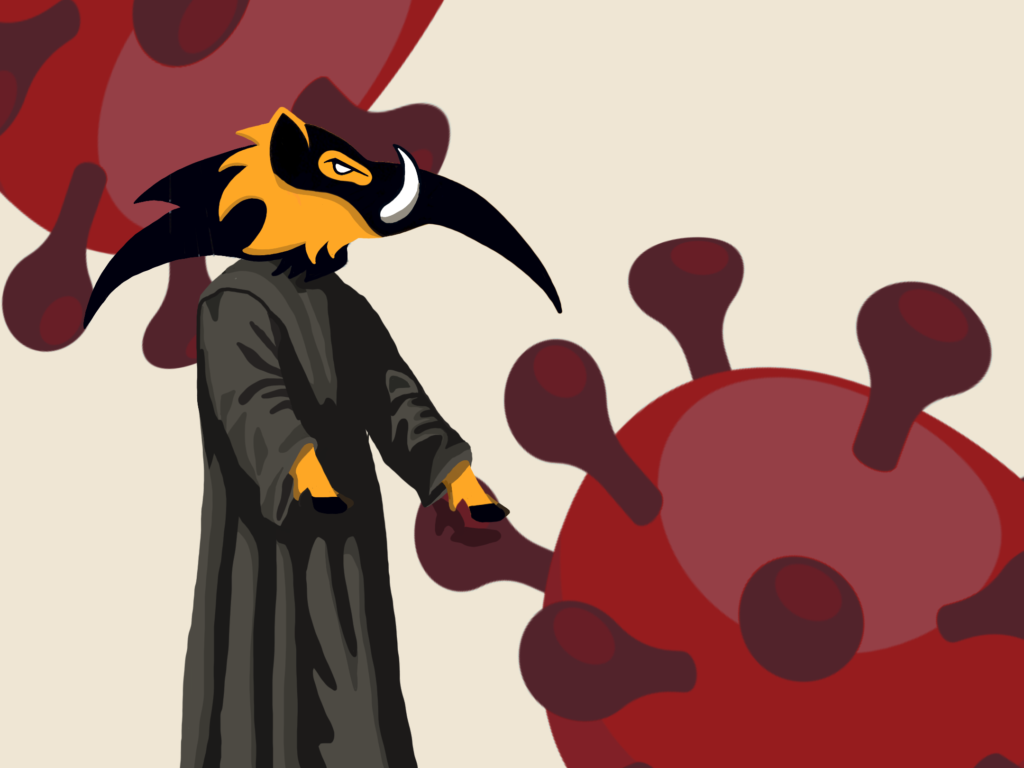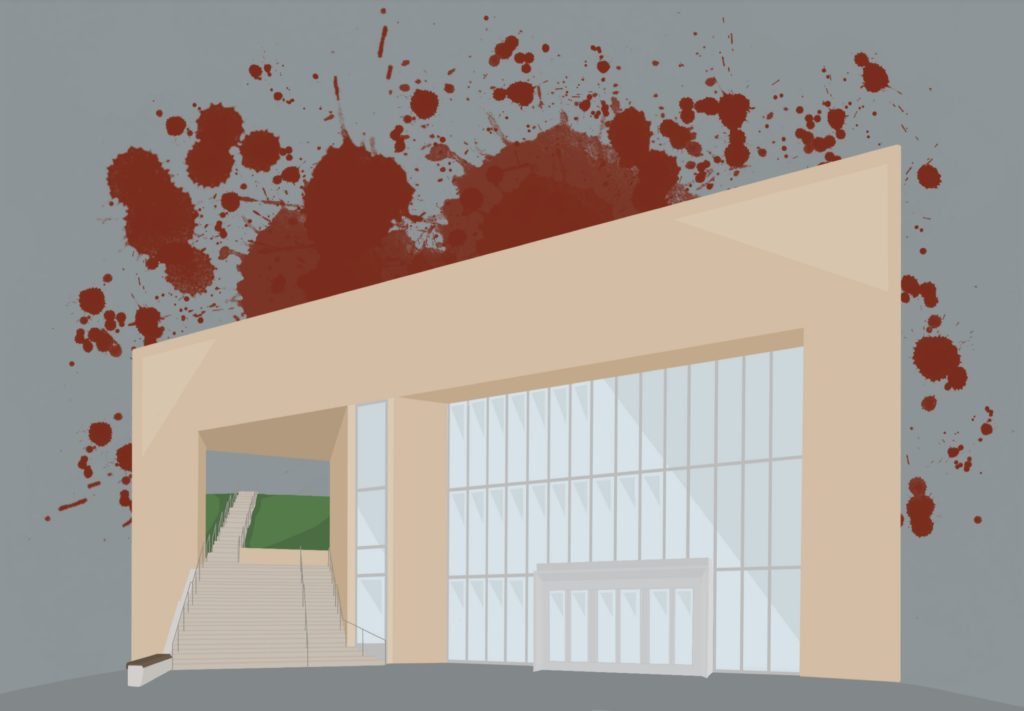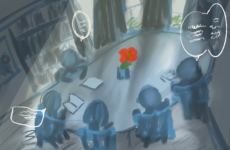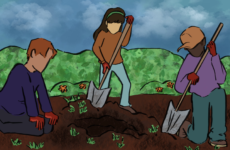
Graphic courtesy of Yujin Kim ’23
In late September, students first began displaying the tell-tale symptoms of what many have labeled the infamous “Choate Plague.” For many students, the first giveaway was waking up with a slight sore throat — but perhaps that was from yelling too hard while cheering on the water polo team. Later on in the day, however, the coughing and congestion would start, to the dismay of classmates and teachers sitting together at the Harkness table. Finally, a wave of exhaustion hits and speaking without an occasional croak becomes difficult.
While the cause of the “Choate Plague” is still unknown, many students and faculty hypothesize that the novel sickness started at the SAC dance on September 18. While the SAC dance was an outdoor event, no amount of natural air circulation could account for such a large group of students in close proximity.
Everyone seemed to be catching the “Choate Plague.” Yet, no matter how sick a student was, they were still forced to consider how missing even a single class would impact their learning and eventually their grade. By missing a math class, for example, I would miss a section of notes for the upcoming chapter test. Not only would I have to teach myself the section through the textbook, but I would also fall behind on homework and classwork. In an environment such as Choate’s, the pressure to succeed academically is universal. The idea of college and transcripts remains a constant thought itching at the back of students’ minds. Thanks to the continuous threat of missing class, many students, including myself, would rather go to class sick than go to the Health Center.
However, by attending a class while sick, we run the risk of infecting our classmates and teachers. In fact, new mutations of the “Choate Plague” already seem to be spreading. While some may argue that it is selfish or unethical for students to go to class when they are sick, I think blaming them ignores the root of the problem: Choate’s sink-or-swim environment.
The Mayo Clinic emphasizes rest as one of the most important remedies for illnesses such as the common cold. How are Choate students supposed to apply this remedy when they must attend classes; complete endless hours of homework; and participate in sports, clubs, and a variety of leadership positions when the academic day is over? The unfortunate truth is that we simply can not afford to rest. So, we continue trudging through our daily lives as if we are not sick, only worsening our well-being.
If the Choate community wishes to make it through the winter without the lingering threat of further mutations of the “Choate Plague,” we must truly consider why we foster an environment in which academics remain a higher priority than health. When students do not take care of themselves and their sickness worsens, they will ultimately have to miss more classes and have more missed assignments. On a deeper level, we must look at how our actions and values as a community contribute to the non-stop productivity that prevents students from prioritizing their health. The “Choate Plague” helped bring awareness to Choate’s unhealthy academic culture, one that the community must now actively work to combat.




